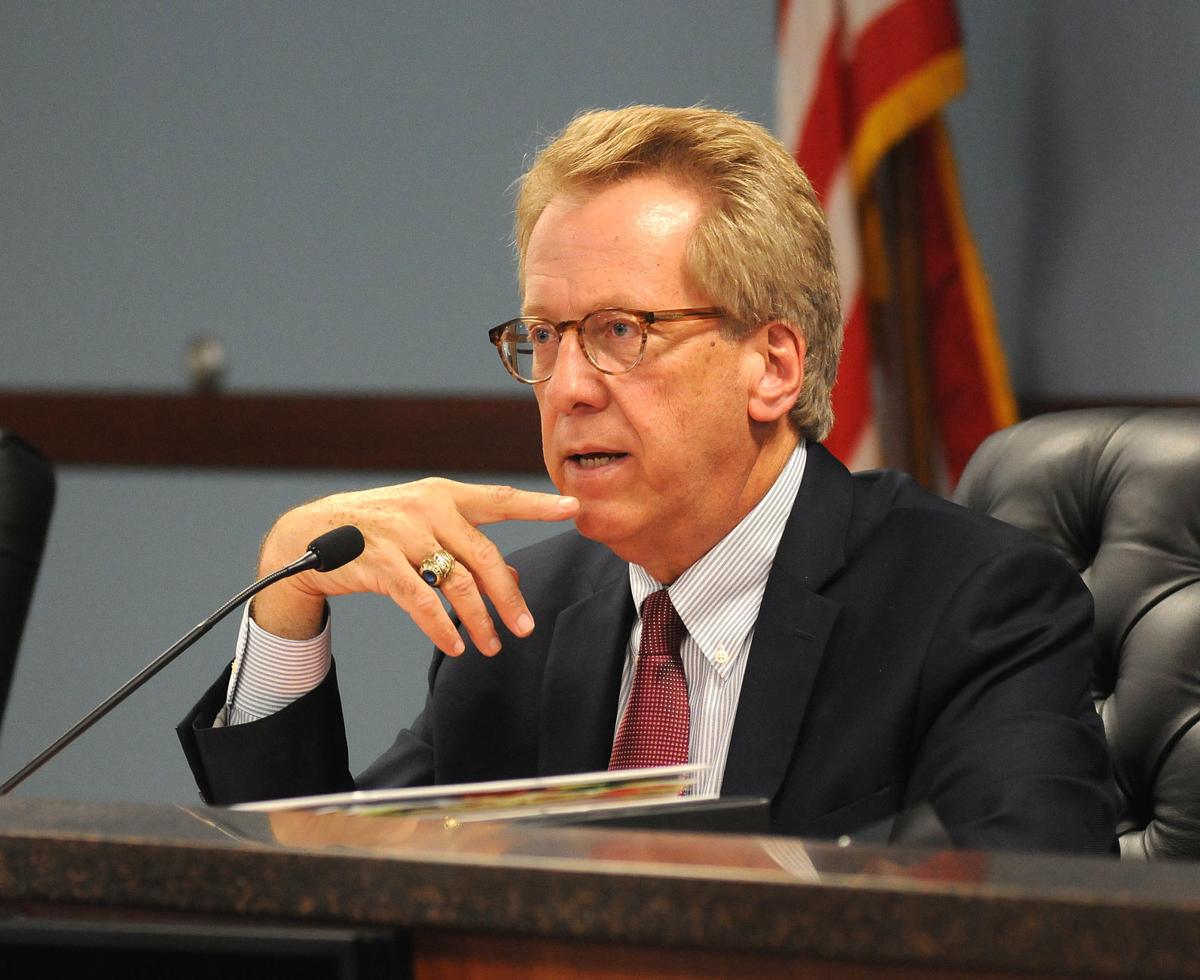PHOENIX — State utility regulators approved a new code of ethics late Wednesday, including new limits on how much anyone with business before them can donate to candidates running for the commission.
But two of the panel members said the wording has a gaping hole that could still give utilities a way of financing their favorite commission candidates, at least indirectly.
The language crafted by commissioner Boyd Dunn technically does not keep current and wanna-be commissioners from taking campaign money from utilities and others who are trying to convince the panel to approve or reject some pending issue. Instead it says that if a candidate for the commission takes campaign money from someone who has business before the commission they cannot vote on that matter when it goes before the panel.
The idea, said Dunn, is to make it clear, particularly to the public, that there is no nexus between a campaign donation and how someone votes on the commission.
But here’s the thing: Candidates can still take money from individuals on the do-not-give list, ranging from company owners and executives to staffers, lobbyists and even hired attorneys, but only if they are running with public financing.
What that’s all about is the fact that voters in 1998 created a system that allows but does not require candidates for statewide and legislative office to get public funds for their campaign if they refuse to take private donations.
In the case of those seeking seats on the commission, that means gathering at least 1,500 $5 donations from individuals. Those who qualify get $116,016 for a primary race and, if they survive, another $174,024 for the general election.
Commissioner Justin Olson said that paves the way for a utility or group of companies to get all employees and executives to each provide $5. That, he said, would qualify the favored candidate for more than $290,000 in public funds — and at a real discount.
“I don’t think we’re addressing the concern that I feel the public has with candidates for the commission financing their campaigns from the entities that we regulate,” Olson said. “I think that’s a significant concern to the public.”
He wasn’t alone in his objections. Lea Márquez Peterson, appointed to the commission five weeks ago, also opposed the public financing exemption.
Dunn brushed aside the concerns, saying the whole purpose of the Clean Elections Act was to remove the burden of candidates from having to seek money from special interests. And he said that public financing system has its own reporting and enforcement mechanisms.
He also called the example cited by Olson a “hypothetical.”
What the newly adopted rules appear not to directly address are situations where utilities and their political action committees give not to candidates but instead to other groups, often with innocent-sounding names, who then, in turn, spend money to try to elect the candidate.
That’s what happened in 2014 when Pinnacle West Capital Corp., parent company of Arizona Public Service, funneled $10.7 million to other groups to secure the election of three Republicans running for the commission.
By law the candidates cannot officially be aware of that spending, coordinate that spending — or even block outside groups from running those ads. And the Republican-controlled Legislature has adopted laws to allow these groups to hide their actual donors.





